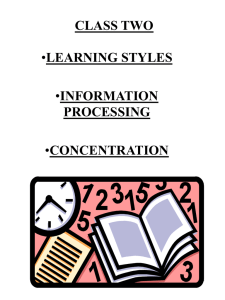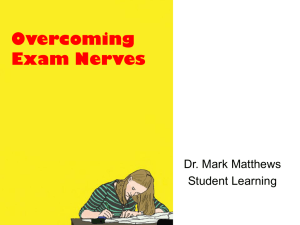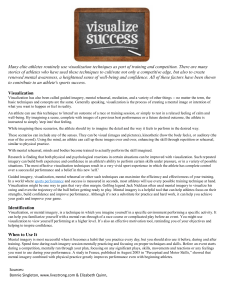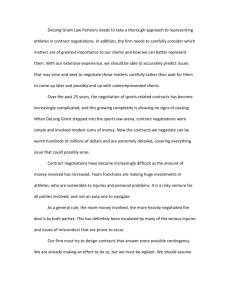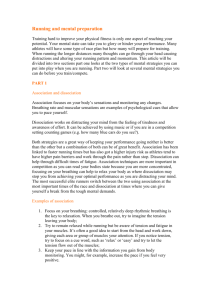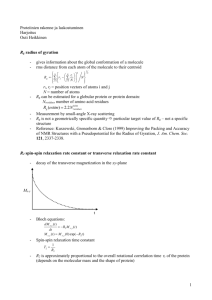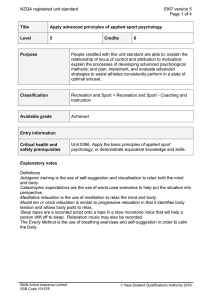psychological strategies to enhance motivation and
advertisement
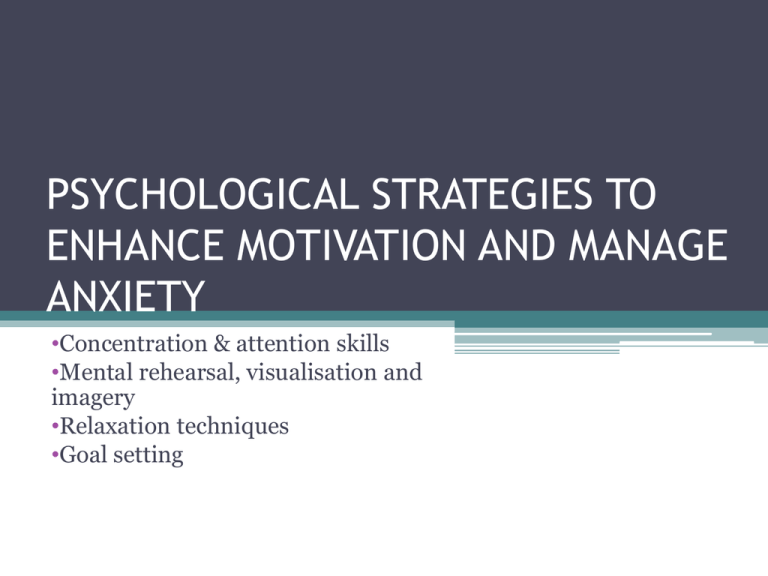
PSYCHOLOGICAL STRATEGIES TO ENHANCE MOTIVATION AND MANAGE ANXIETY •Concentration & attention skills •Mental rehearsal, visualisation and imagery •Relaxation techniques •Goal setting Concentration & Attention Skills (Focus) • Concentration is the ability to link movement and awareness to the extent that the individual can focus on doing, rather than thinking about doing. • Concentration can be improved through training that emphasises the process rather than the outcome. When an individual focuses on the process, they give attention to technique which helps improve performance. • The type of concentration required varies from one sport to another. Intense concentration is required in activities such as gymnastics, diving and batting in cricket. • Intervals of high concentration interspersed with periods with less intense concentration predominate most team games. • Extreme sustained concentration is required for sports such as triathlon and marathon running. Mental Rehearsal, visualisation & Imagery http://youtu.be/zylg-cmxHJY • Mental rehearsal, sometimes called visualisation or mental imagery is the technique of picturing the performance or skill before executing it. • It can be used in preparation for any sporting event. It requires the individual to clearly see (in their mind) themselves executing the skill or movement successfully to be of any benefit to a performance. • This technique is advantageous as it improves concentration levels, provides the athlete with additional practice and can remove the need for total reliance on physical training. Relaxation Techniques • Relaxation techniques are a series of techniques that seek to control the body’s response to stress. • These techniques assist the athlete in addressing anxiety and arousal levels. • Techniques commonly used by athletes include: - Progressive muscular relaxation. - Mental relaxation. - Self-hypnosis. - Mental rehearsal. - Meditation. - Centred breathing. Goal Setting • The establishment of goals is important to improve both individual and team preparation. • Empowering athletes with the responsibility to set their own goals, make them more likely to fulfil them. • Goals provide athletes with focus, direction and reasons to persevere with training over extended period of time. • Goals can be short/long term, behaviour or performance oriented. Goal setting • Short Term goals: goals that can be achieved in a limited period of time. • Long Term goals: goals that can be achieved over a long period of time. • Behavioural goals: goals that can improve behavioural expectation in training/competition. • Performance goals: goals that are related to an athlete's desired level of success.


